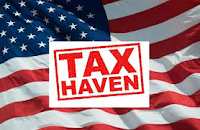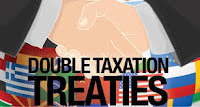
On June 5, 2019 we posted IRS Whistleblower Office Collects Over $1.44 Billion & Paid a Record $312M to Tipsters, where we discussed that the Internal Revenue Service’s Whistleblower Program made 217 awards to whistleblowers totaling $312,207,590 and collected $1,441,255,859 in fiscal year 2018, according to a new report. The annual report from the IRS Whistleblower Office said the number of awards paid under section 7623(b) of the Tax Code increased 14.8 percent in fiscal year 2018, compared to fiscal 2017. The proceeds collected from taxpayers were $1,441,255,859.
Now the Whistleblower Office of the Commodity Futures Trading Commission (CFTC) has issued an alert to inform members of the public about how they may make themselves eligible for both financial awards and certain protections while helping stop fraud and manipulation relating to virtual currencies.
The Internal Revenue Service defines a virtual currency, such as Bitcoin, as a digital representation of value that functions as a medium of exchange, a unit of account, and/or a store of value. Virtual currencies are commodities under the Commodity Exchange Act (CEA). When a virtual currency is used in a derivatives contract, or if there is fraud or manipulation involving a virtual currency traded in interstate commerce, CFTC enforcement of the CEA comes into play.
What types of misconduct should you be on the lookout for?
The CFTC has sued companies and individuals for fraudulently soliciting investments in virtual currencies. Conduct like that in the CabbageTech and My Big Coin cases is always of concern to the CFTC. Other concerns include:
- Price manipulation (like pump-and-dump schemes) involving virtual currencies and other virtual assets.
- Pre-arranged or wash trading of virtual currencies, or swaps or futures contracts based on virtual currencies.
- Virtual currency futures or option contracts or swaps traded on an unregistered domestic platform or facility.
- Certain schemes involving virtual currencies marketed to retail customers by unregistered persons, such as off-exchange leveraged, margined, or financed commodity transactions with persons, even without direct evidence of fraud or manipulation.
- Supervision failures or fraudulent conduct (e.g., creating or reporting fictitious trading) by virtual currency exchanges.
About the CFTC We are the U.S. regulator charged with ensuring the integrity of the futures & swaps markets.  About the Whistleblower Program We will pay monetary awards to persons who voluntarily provide us with original information on a Form TCR about violations of the CEA or its rules, if that information leads to a successful CFTC enforcement action resulting in more than $1 million in monetary sanctions. The program also affords confidentiality and anti-retaliation protections.
About the Whistleblower Program We will pay monetary awards to persons who voluntarily provide us with original information on a Form TCR about violations of the CEA or its rules, if that information leads to a successful CFTC enforcement action resulting in more than $1 million in monetary sanctions. The program also affords confidentiality and anti-retaliation protections.
________________________________________
for a FREE Tax Consultation at:
Manipulation capitalist Manipulation
Read more at: Tax Times blog















